Dyno Testing Air Filters ($9 to $90) in My Civic Si: Do Any Make Power?
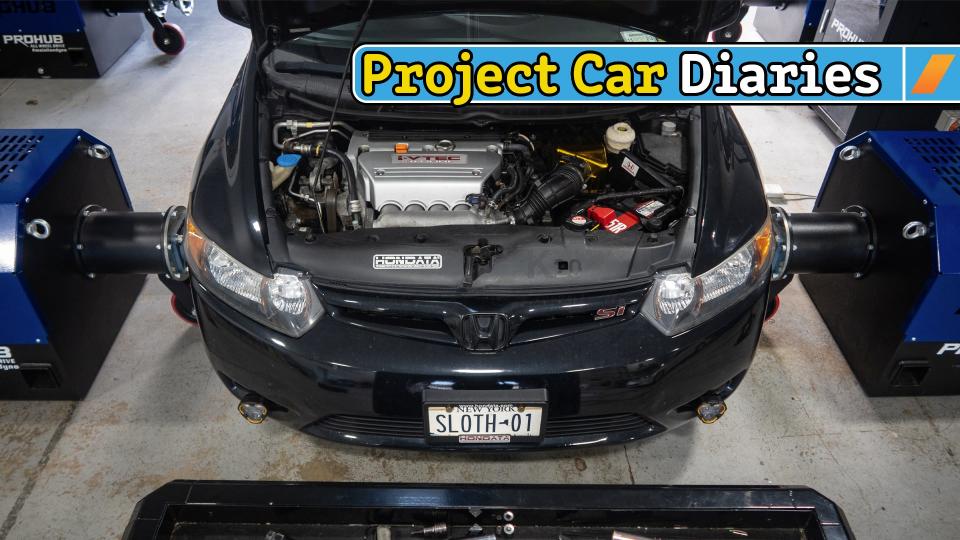
The air intake system in most cars involves a plastic airbox that houses a rectangular filter. No matter what car you have, l bet you can find cheap filters and expensive filters—so you get to decide if the fancy one's worth the money. Since cars and conditions vary so much there's no stone-set definitive answer, but I think the results I got testing five different filters in my K20Z3-powered Honda Civic Si will apply fairly universally.
In other words, if you're wondering if a high-performance drop-in air filter is worth buying, this story will explain why the answer is "no." At least, from a power perspective.

The Results
For those of you who just want to know which filter is best, here you go: The horsepower and torque curves were all so close across the board that the difference is pretty much moot. However, look closely and you'll see that the Honda OEM filter had a slight edge.



Denso (used)—177.0 hp, 118.4 ft-lb of torque ($9.84 at RockAuto)
Honda OEM—176.7 hp, 118.4 ft-lb of torque ($17.74 at Majestic Honda)
Ultra 8—173.6 hp, 116.4 ft-lb of torque ($8.99 at NAPA)
aFe Power Pro Dry S—175.3 hp, 117.5 ft-lb of torque ($78.40 at aFe Power)
Spoon Sports—174.9 hp, 117.3 ft-lb of torque ($90.00 at Spoon USA)
Realistically, they're all so close that it's more apt to say "the filter isn't a bottleneck" in the stock air system, rather than "one filter is superior to another." Nevertheless, it's cool to log more empirical evidence of how aftermarket car parts perform.
The Filters
Here are the filters I tested and why:
The Denso unit that was in the car—I'd bought it thinking Denso was the OEM supplier for this part. Turns out it isn't, but I figured we might as well test the one I drove down with
Honda OEM—gotta test the factory filter with the factory airbox
Ultra 8—this was the cheapest available air filter, period. My local NAPA Auto Parts had this (significantly) cheaper option than all the other auto parts stores around here, and the price on these even beat Amazon and RockAuto once you factor in shipping
aFe Power—an American tuner that's been making intakes forever. It makes a high-performance oiled air filter and a dry one (we tested the latter)
Spoon Sports—an elite Japanese Honda tuner. This part is technically for the eighth-gen Civic Type R, but it fits the Si airbox (would also fit in a Honda Element, if anybody cares)
I sort of fell into this test backward. My Civic had an Injen cold-air intake on it when I got it, and the car ran like crap. I got it professionally tuned with an ECU management device called a Hondata FlashPro which made the car run nicely—this is a critical step in car modding. But the cold-air intake system placed the filter down near the wheel and I was worried it would be dangerously susceptible to contamination from the elements. So I decided to build a stock intake (requiring a surprisingly protracted scavenger hunt for parts) and install it.
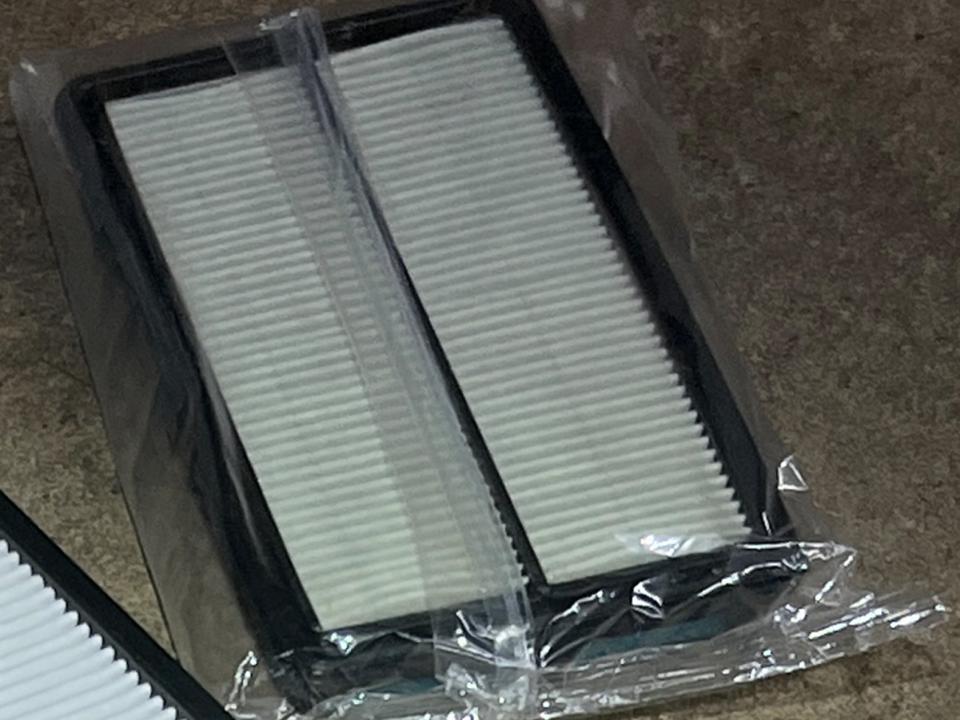
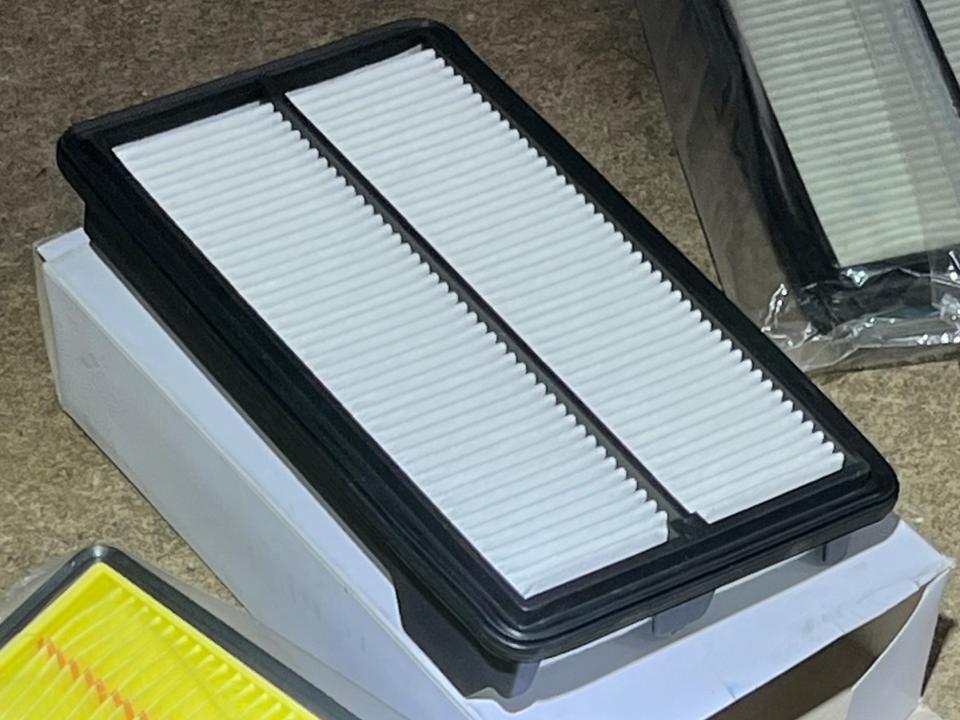
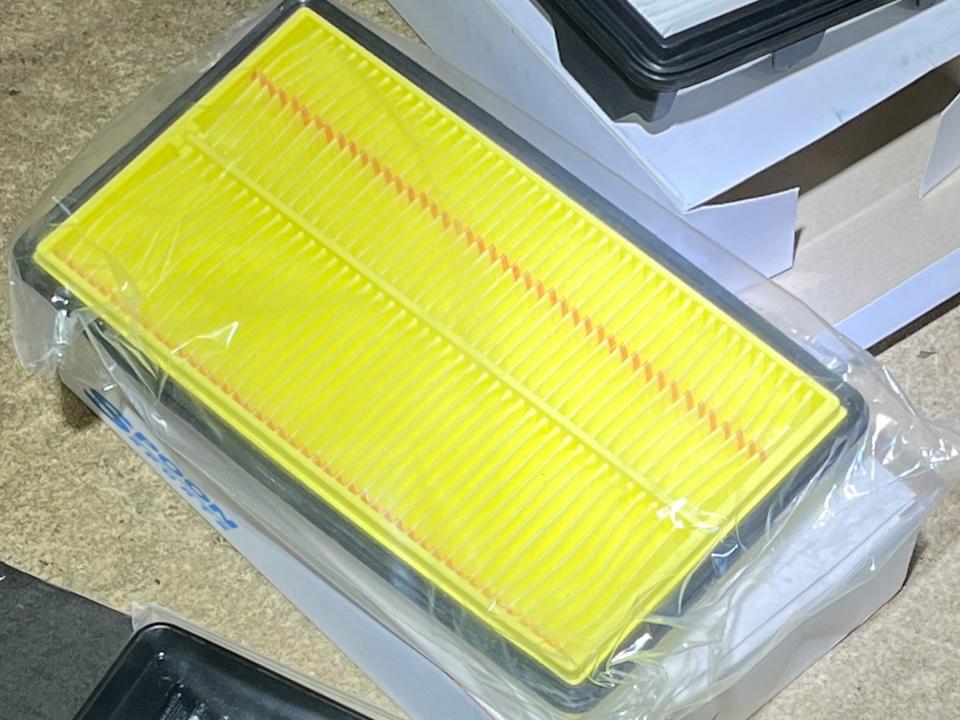
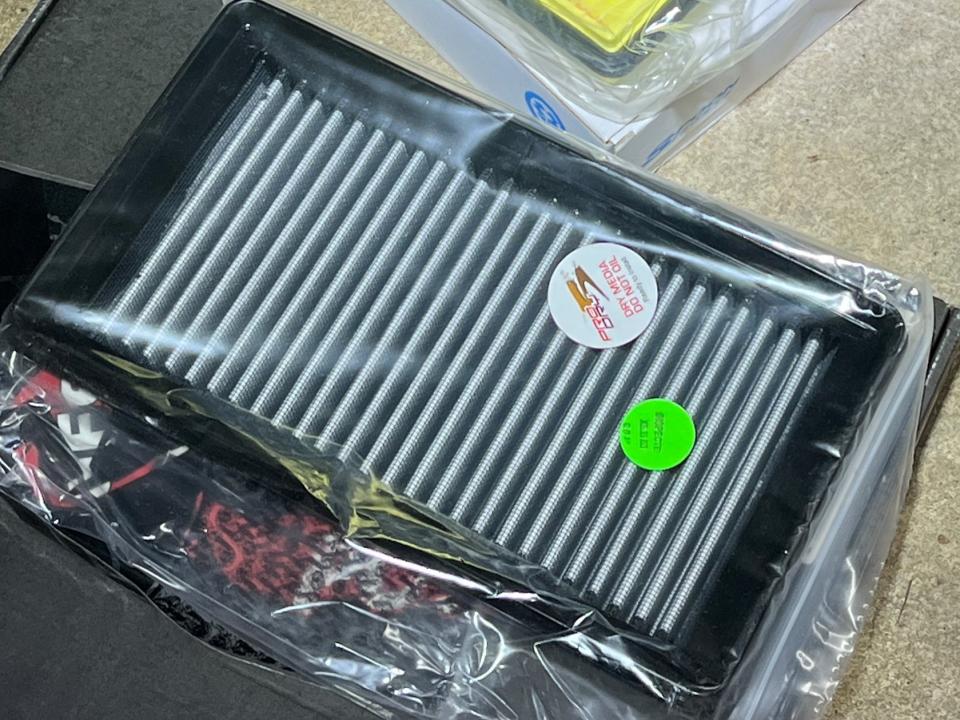
Still seeking optimization, I wrapped the stock intake in heat-reflecting gold tape and started researching air filters. I knew about oiled K&N filters and their claims of added hp, but I'm dubious of oiled filters for reasons I'll articulate later. What I didn't know, however, is that tuners aFe Power and Spoon Sports both sell dry drop-in air filters that fit my eighth-generation Civic and promise performance enhancements. "I wonder if they actually do anything," I thought, trying to convince myself to pony up $90 for the Spoon one because I really wanted a Spoon "part" in my car for coolness (hah, I know—I'm goofy as hell).
But then I realized: It would be cool to know the actual horsepower of my K20Z3 engine as a baseline against future mods, plus the tuner could optimize the car as-is. And since a factory air filter can be changed in seconds, it wouldn't cost much dyno time to try a handful.
In addition to the Spoon and aFe units, I thought it made the most sense to compare them against a factory OEM filter. Then for the sake of even more context, I figured, why not grab the cheapest filter available? In hindsight, I wish I'd grabbed a Wix and a NAPA Gold unit too, because those are my typical go-tos. But oh well, had to stop somewhere.
The Stock Filter Rocks
Turns out Honda's filter really is optimized for Honda's intake system. In this case, at least by this measure, the expected result came true.
Honda's factory filter for this car is made by a company called Filtech. That's a Europe-based supplier that furnishes many different types of industrial air filters as original equipment to various companies.
If you have a stock or lightly modified Honda, I'd highly recommend running this filter since it seems to be optimal from a performance standpoint and it's clearly capable of good filtration—eighth-gen Civics are pretty darn old now and I've never heard of reliability issues related to particle ingestion.

 Yahoo Autos
Yahoo Autos 